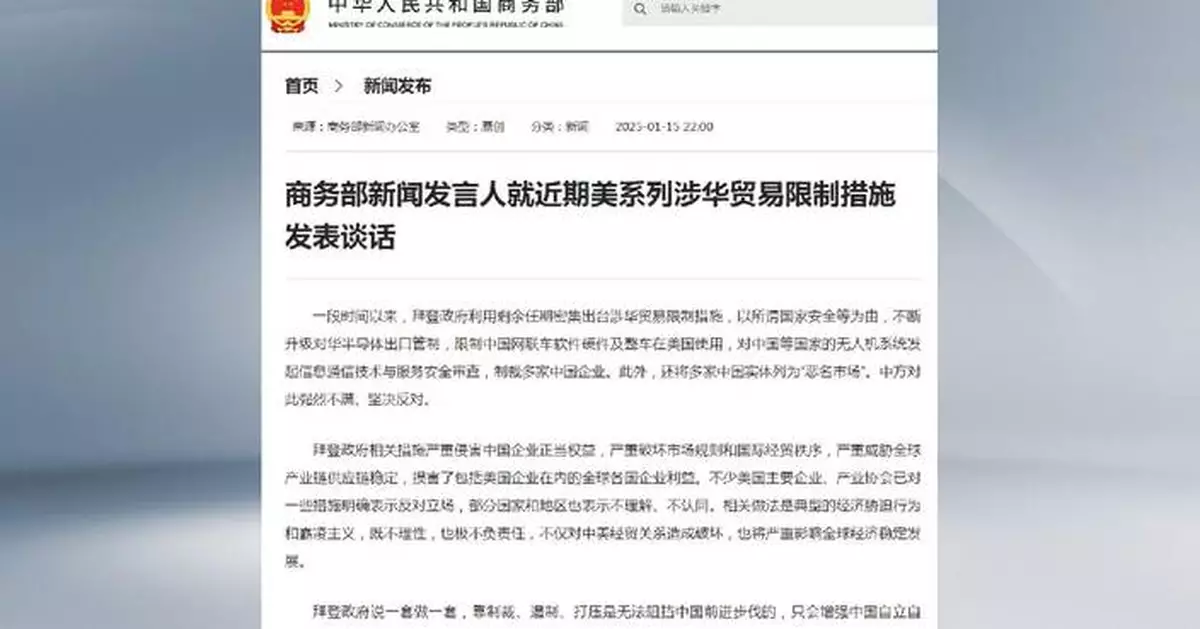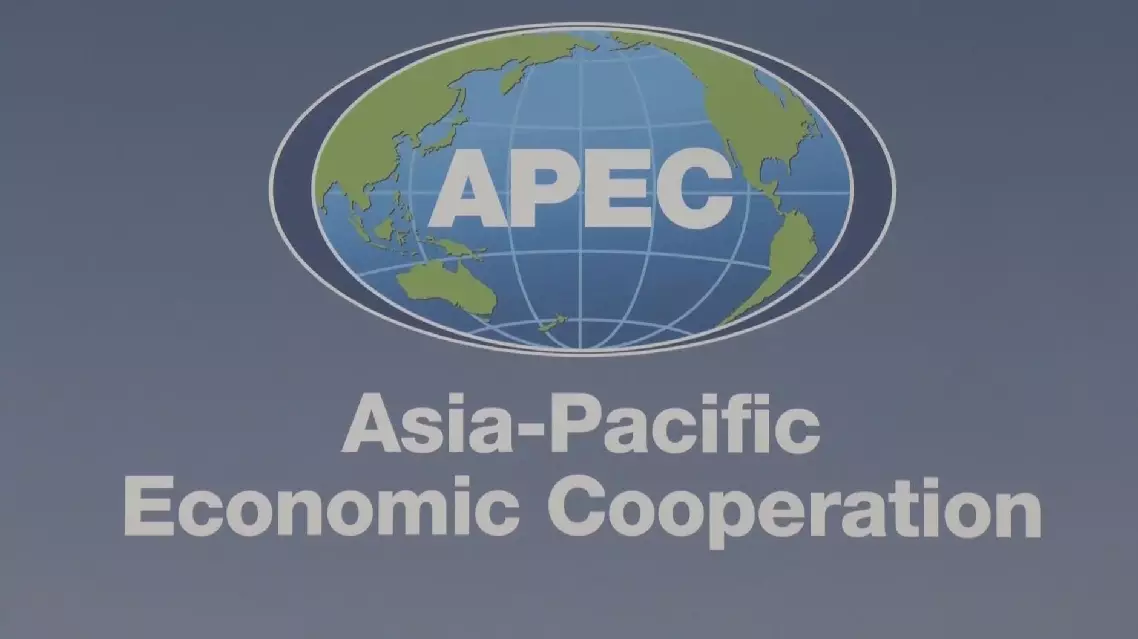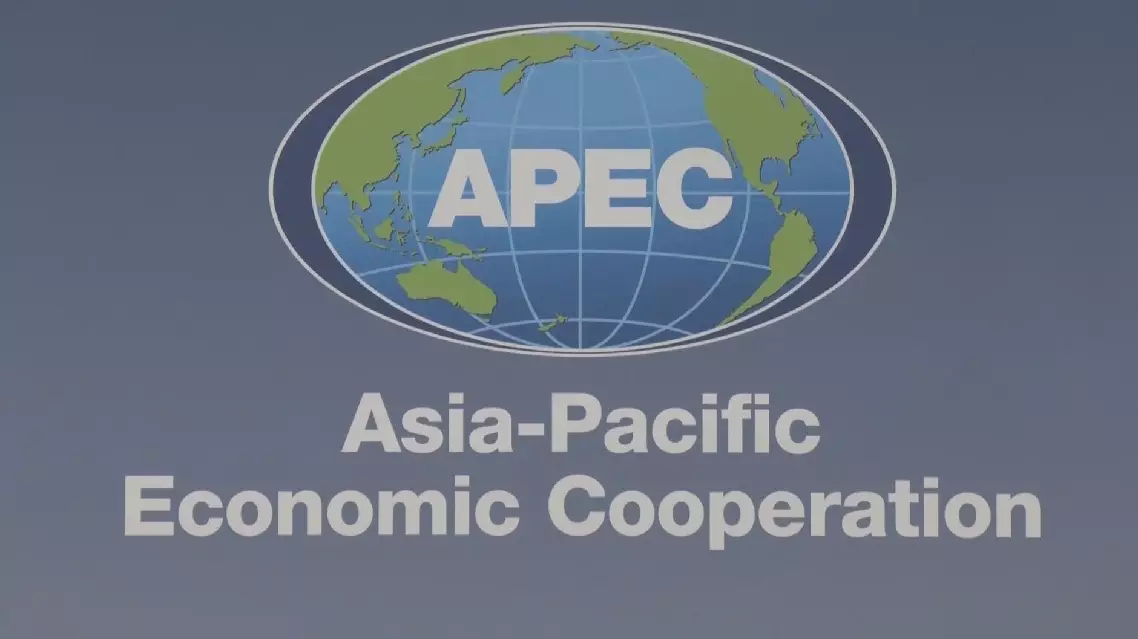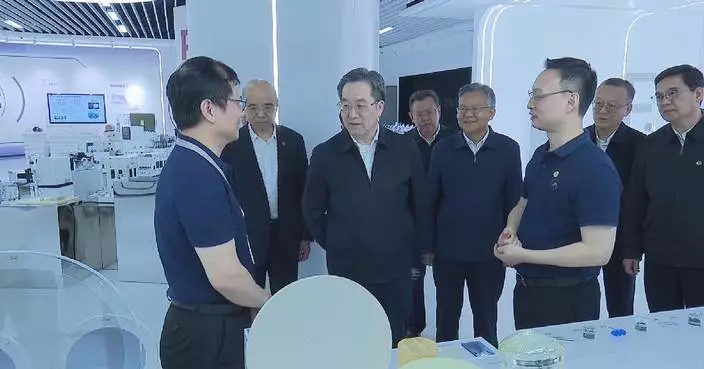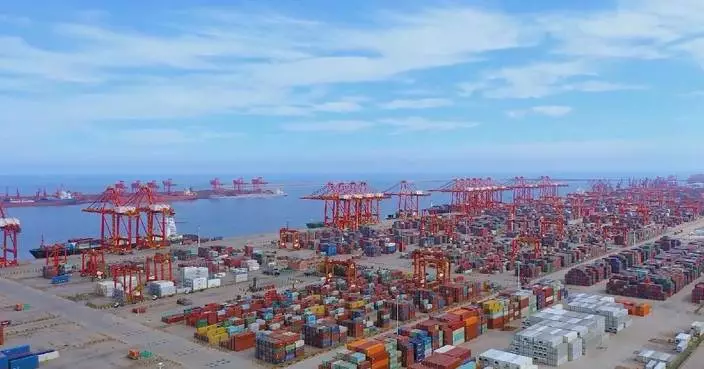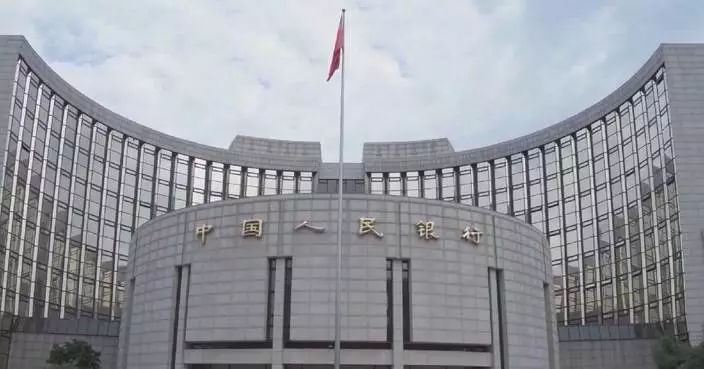China's Ministry of Commerce on Wednesday condemned a series of trade restrictions recently imposed by the U.S. government, accusing Washington of escalating economic pressure through sanctions, export controls, and other measures aimed at hindering China's development.
A spokesperson for the Ministry of Commerce said that the Biden administration, seeking to exploit the remainder of its term, has rolled out a series of trade restrictions under the pretext of national security. These measures include increasingly stringent controls on semiconductor exports to China, and restrictions on the use of Chinese connected vehicle hardware and software systems, as well as completed connected vehicles in the United States.
The U.S. has also launched reviews of the security of Chinese drone systems and sanctioned multiple Chinese companies. Several Chinese entities have also been added to the U.S. "notorious market" list.
The ministry spokesperson voiced China's strong dissatisfaction with and firm opposition to these actions, emphasizing that they severely infringe upon the legitimate rights of Chinese enterprises and seriously undermine market rules and the international economic and trade order.
The spokesperson highlighted that such measures threaten the stability of global industrial and supply chains and damage the interests of businesses worldwide, including those in the U.S. Many major U.S. companies and industry associations have expressed their opposition to these measures, with other countries and regions also voicing objections, the spokesperson noted.
Describing the U.S. actions as typical economic coercion and bullying, the spokesperson pointed out the irrationality and irresponsibility of the approach, adding these measures not only harm China-U.S. trade relations but could also destabilize the global economy.
The spokesperson underscored that the Biden administration's tactics of sanctions and suppression would not thwart China's progress. On the contrary, they would only serve to bolster China's determination to innovate, strengthen its self-reliance, and enhance its technological capabilities.
The spokesperson vowed that China will take resolute measures to protect its sovereignty, security, and development interests.
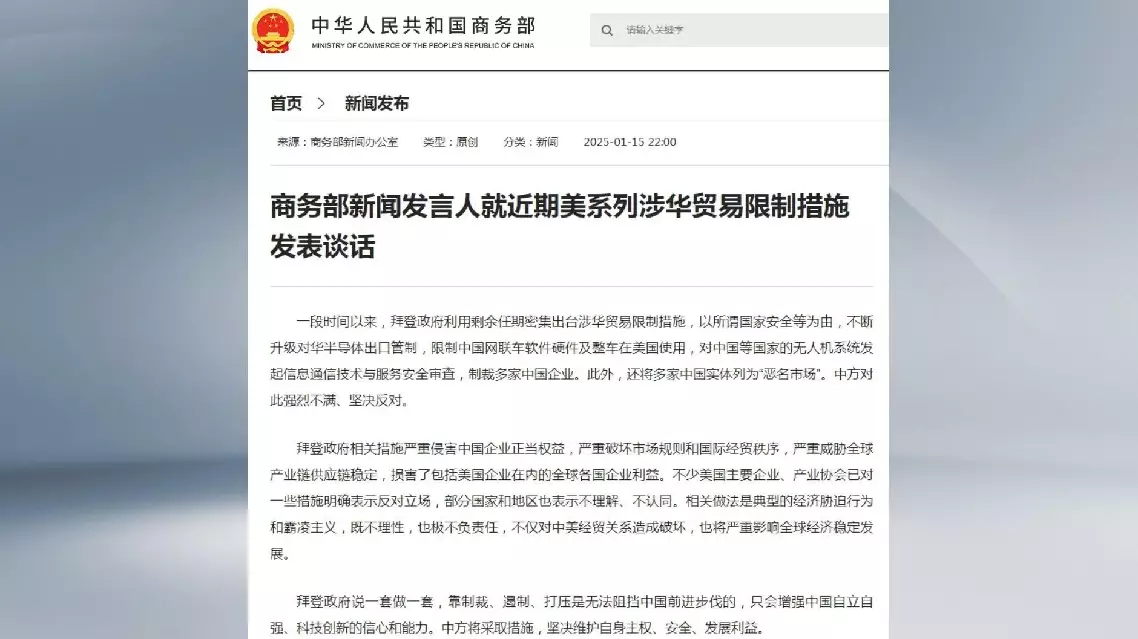
China slams US trade restrictions, vows to protect its interests
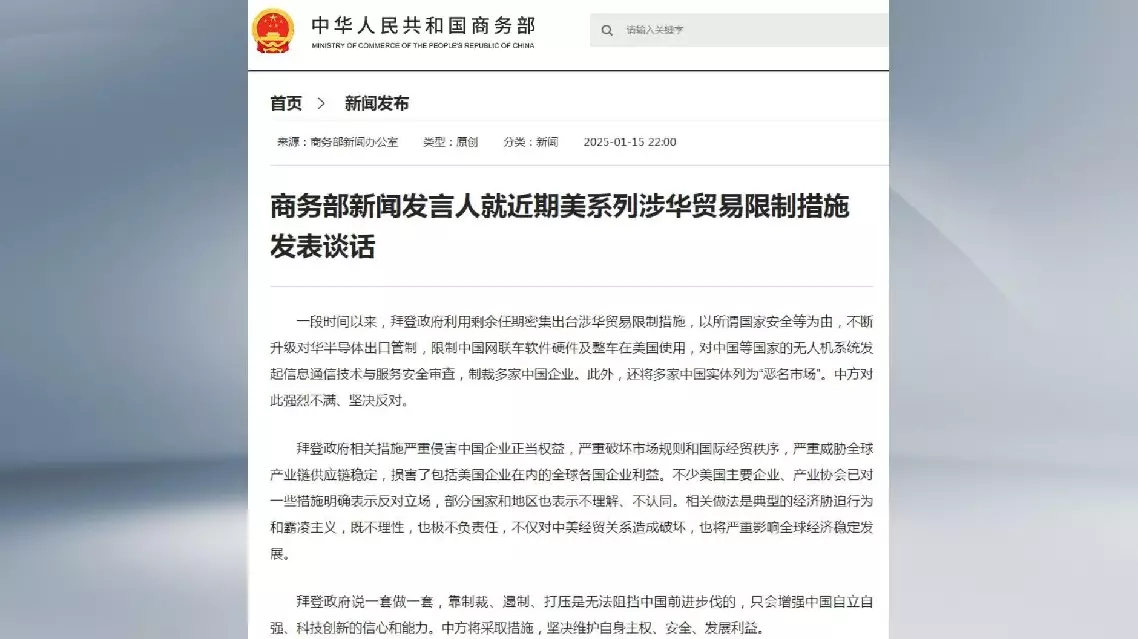
China slams US trade restrictions, vows to protect its interests


